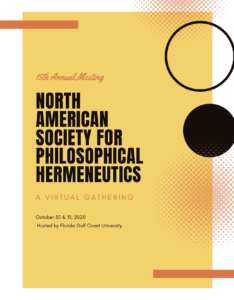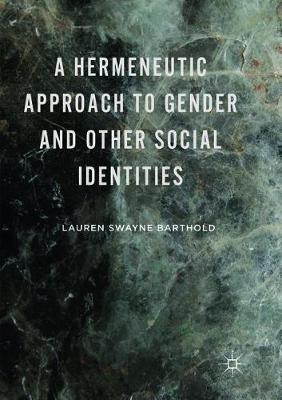Lauren Swayne Barthold’s new book, Overcoming Polarization in the Public Square: Civic Dialogue. 
The book is comprised of six chapters and makes a case for how dialogue can help to break through particularly polarized sociopolitical spaces. According to Barthold, when the public square has become throughly polarized and people seem to ignore or have no interest in rational argumentation or appeals to empirical facts, the focus should turn first to building trust so that openness and mutual understanding can occur. On Barthold’s view, civic dialogue must be structured in such a way that it creates a space for genuine listening and reflecting on one’s own position and the other’s. The hope is that while acknowledging the real differences that exist among individuals and groups, such structured dialogue will allow what we share in common as human beings to come into focus.
Barthold draws from a variety of dialogue partners and texts including Plato’s Socrates from the Republic, Martin Buber, John Dewey, Hans-Georg Gadamer, Hannah Arendt, Miranda Fricker, and contemporary research on cognitive bias. While engaging philosophical sources and insights, Barthold also turns to the work of dialogic practitioners. E.g., in chapter 4, she discusses an approach to dialogue called, “Reflexive Structured Dialogue,” which “places first person experience and narrative” at the center of dialogic practice (Overcoming Polarization, p. 19). Against the conclusions of certain practitioners who claim that mutual understanding is a form of empathy, Barthold argues that “the goal of dialogic understanding should not be conceived as empathy–either emotional or cognitive.” Rather, in accord with insights from Buber and Gadamer, Barthold contends that “mutual understanding is best defined as acknowledging the other’s claim to existence as a Thou. To take up the truth claim of the other is to engage in a dialogic relationship that affirms the other’s status as a Thou.” (ibid., p. 21).
Given the current dialogical breakdown, polarization, dismissal of science, and lack of trust among differing groups in the United States, Barthold’s book is a welcome contribution to both the public sphere and the classroom.
If you want to learn more about Lauren’s book, you may listen to her discuss the book in an interview on the podcast “Ethics in Action.”

 Due to the ongoing COVID-19 pandemic, the NASPH 2020 annual meeting will take place via Zoom on the afternoon of Friday October 30 and from mid-morning to mid-afternoon on Saturday October 31.
Due to the ongoing COVID-19 pandemic, the NASPH 2020 annual meeting will take place via Zoom on the afternoon of Friday October 30 and from mid-morning to mid-afternoon on Saturday October 31. For those interested, the North American Society for Philosophical Herme
For those interested, the North American Society for Philosophical Herme